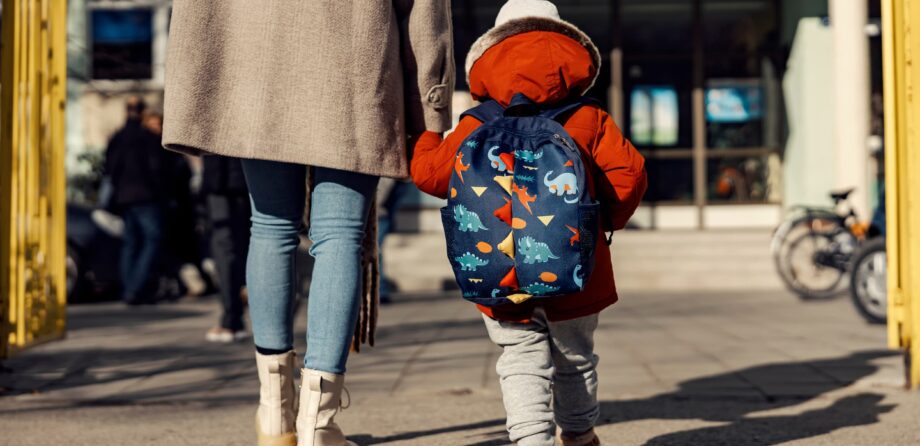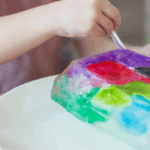
Settling children into nursery
Every child is unique, and starting nursery is a big step for both children and parents. A gentle, well-planned introduction will help your child fell safe, secure and ready to explore. start with to nursery a familiar adult creates security and trust. When children feel settled, they are more confident to build relationships, try new activities, and develop independence.
Settling in isn’t just about the first day – it lays the foundation for your child’s long-term happiness and learning at nursery. A positive start means they associate nursery with comfort, fun, and trust, making daily drop-offs smoother for everyone.
Our top tips for starting nursery
Settling sessions in nursery
Most nurseries offer settling in sessions. These will usually increase gradually, starting with half an hour or an hour and you staying, to a time where you leave the room and then maybe the building. They will work with you on times to attend and include time over lunch and sleep, so your child begins to get used to all aspects of the day.
When settling into nursery, it’s important to remember that the environment is very new to both you and your baby, so while nursery practitioners will aim to follow your preferences and routines, they may differ depending on how your child settles. For example, it is quite common when a child first starts at nursery that they do not eat or sleep the same as they may do at home.
Key person
Your child will be provided with a key person who builds a close, consistent relationship, learns your child’s routines, and is your goto contact. Share anything that helps: comforters, words you use at home, feeding and sleep patterns, likes/dislikes, and any worries.
During your initial meeting, the key person should also gather some information from you about your child’s interests and development, e.g. if they are pulling themselves up, starting to say some words etc.
Your child’s key person will plan learning and activities that will individually support your child’s development and share photos and observations with you.
Sleep
Nurseries will vary in practice, but usually, children will sleep based on their individual needs and preferences.
This may be in a cot or on a sleep mat. It can help if you can start to think about your child’s daytime sleep when at home and where a baby may have been used to sleeping, such as in a pram or sling during the day, to try to transition them where possible to a cot or a mat.
Nurseries will have policies to ensure safe sleep practices are in operation, which you can look at.
Milk
Nurseries will work with you and provide your baby with whatever they need. If you are breastfeeding they will have policies in place to store and give your child this milk safely, from a bottle or beaker. Try to practice this prior to them starting so they begin to get used to taking it this way.
Meals
Sharing your child’s food preferences is really important. Let staff know about likes, dislikes, and any cultural or family food choices so they can support your child at mealtimes.
Many settings have cooks on site that can make food to your child’s requirements including those who are weaning. The same applies to allergies and dietary requirements – staff will work with you to ensure you child’s needs are met.
Most nurseries follow a healthy eating policy and will happily share menus with you, so you can see what your child will be offered each day. This also gives you the chance to talk about meals at home, helping your child feel more confident about trying new foods.
Comforters
A familiar blanket, teddy, or family photo can provide comfort and reassurance If your child has a favourite story or song share these too, reading or singing those throughout the day will help them to settle in to nursery life.
Sharing information
Many nurseries use secure online platforms to share your child’s experiences. Practitioners upload photos and updates, allowing you to see you’re your child is doing throughout the day. This can be particularly reassuring in the early days.
Many of these platforms enable you to upload photos and information. This is a great way to help staff learn more about your child’s life, interests, and routines. Practitioners can then talk with your child about familiar people, pets, or places, and even use the photos to help your child feel happy and settled.
Expect some big feelings
Tears or clinginess are normal and with time and reassurance, will help your child to fell happy and content
Use familiar routines
Children feel safest when life is predictable. Try to keep home routines, such as mealtimes and bedtime, as consistent as possible. Use the same simple routine for drop-off and pick-up each day too. Knowing what to expect helps your child feel secure and builds confidence in their new environment.
Keep goodbyes short and confident
A calm, positive goodbye helps your child feel secure and trust that you will return. Avoid slipping away without saying goodbye, as this can increase anxiety and make settling harder.
Talk positively about nursery
Speak with enthusiasm about nursery and the people your child will meet. Looking at photos of the rooms and staff or reading simple stories about starting nursery can help your child know what to expect and build excitement.
Celebrate Successes
Whether it’s trying a new activity, staying for lunch, or making a friend, recognise and praise each step your child takes
Looking for more support? See our page of free factsheets for parents of children that go to nursery.
- PSED
Similar Articles
Top tips: Supporting your team’s well-being

Early years activity: Frozen balloon explorers


